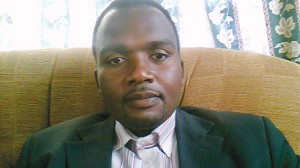
All governments, businesses, churches, non-governmental organisations and educational institutions have one common thread that runs through all of them.
That common thread is an initial idea or a spark in someone’s mind or imagination that brought those institutions into existence.
For something to exist in the so-called real world, someone has to be daring enough to sponsor its existence by thought or action.
A great literary icon is reported to have said “Manners maketh a man”, which implies that having or cultivating good manners is crucial to the full expression of the humanity and dignity of a man.
Nevertheless, one can readily say that in the modern world ideas make a man, not just his demeanour or manners.
An idea is a thought or set of thoughts pertaining to a situation in the world felt internally by the idealist.
Such an idea or ideas cry out from within the human being for full expression through either action or propagation.
An idea can also be thought of as a cerebral embryo which can be given shape by ejecting it to the three dimensional world that we live in.
- Chamisa under fire over US$120K donation
- Mavhunga puts DeMbare into Chibuku quarterfinals
- Pension funds bet on Cabora Bassa oilfields
- Councils defy govt fire tender directive
Keep Reading
Without fully expressing his or her noble ideas, no one can change the world we live in to be a better place.
Without a constant flow of ideas, all the books we read, the food we eat, the TV programmes we watch and the sports we engage in and watch would not exist.
All the solutions to all imaginable human problems have been provided for by providence through the capacity to imagine the reality we desire and the future we want to enjoy as a people.
In a world without a constant flow of ideas (if such a world would exist), life would not only be dull, there would be no creativity because ideas are the backbone of industry and creativity. Modern companies are powered by ideas.
Ideas power an agro-based firm in as much as they power a diverse media group such as New York Times or CNN.
The so-called modern world is nothing but a creation of a broad mosaic of ideas which emanate from a human spirit which believes it can be done even, though defeatists say it can’t be done.
Those who chide idealists for sometimes being grandiose and unrealistic in their thinking conveniently forget that what we consider as reality today was first of all just thoughts in the mind of someone with the zeal of a pathfinder.
Even the basic unit of society, the household or family starts as an idea or thought. One could build or tear apart his or her life by certain ideas.
What the world needs today to be a better place is not more resources as if it does not have lots of resources that are being abused on a daily basis.
The world needs better thinkers with high quality ideas that can take humanity to the next generation of advancement and development.
All noble ideas necessarily have the desirable quality of seeking or pursuing the greater good of humanity and society as one of their most important goals.
Such ideas must be nurtured and encouraged through establishment of foundations and think-tanks that foster ideation and emergence of cutting edge thought leadership.
The business world actually needs more think-tanks than governments the world over.
Businesses need to invest in all the greatest research that can be undertaken to foster creativity, innovation and an enterprising spirit.
The most economically and technologically developed countries are those that foster thought leadership at the very frontiers of modern knowledge and science.
The secret to stability and political peace is not having mighty armies that instil fear in the general citizenry, but having systems that encourage formulation of ideas into solutions that can eradicate or ameliorate human problems.
The article next week will explore thought leaders whose thinking has revolutionised the way business is conducted in the modern world.
Ian Ndlovu is an economist based at the National University of Science and Technology skilled in data analysis using SPSS, Gretl, Stata, Eviews and Microsoft Excel software packages.
His research interests cover business, development, economic and e-commerce issues. He writes in his personal capacity.










